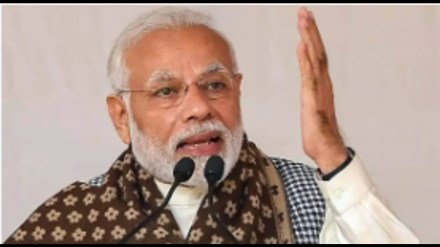Prime Minister Narendra Modi on Saturday said India has become a food-surplus country and is now providing solutions for achieving global food and nutritional security.
“India’s food security was a matter of concern for the world but today India is providing solutions for global food and nutrition security,” Modi said at the 32nd International Conference of Agricultural Economists (ICAE) in New Delhi.
Modi said India is the largest producer of milk, pulses and spices, and the second-largest producer of foodgrain, fruit, vegetables, cotton, sugar, tea and farmed fish.
He said when the conference was hosted for the first time in India, the country had just achieved independence, and it was a challenging time for the country’s agriculture and food security. The conference returned to India after 65 years, with the 10th ICAE held in Mysore in 1958.
Stating that agriculture is at the centre of India’s economic policies, Modi said 90% of the small farmers of India own little land but are the biggest strength of India’s food security.
He said a similar situation is prevalent in several developing countries in Asia, making India’s model replicable.
On the country’s 15 agro-climatic zones, Modi said, “Be it farming on the land, the Himalayas, in the desert, water-scarce regions or coastal areas, this diversity is crucial for global food security and makes India a ray of hope in the world.”
Modi said India has provided 1,900 new climate-resilient varieties of crops in the past 10 years and is promoting chemical-free natural farming. He said the country is moving towards achieving the 20% ethanol blending target in petrol.
He gave examples of rice varieties in India that require 25% less water than traditional varieties and the emergence of black rice as a superfood. “Black rice from Manipur, Assam and Meghalaya is the preferred choice due to its medicinal value,” he said.
This year’s conference theme is ‘transformation towards sustainable agri-food system’, and it is jointly organised by Agricultural Economics Research Association (India), the Indian Society of Agricultural Economics, the Indira Gandhi Institute of Development Research, the Indian Council of Agricultural Research, and the International Food Policy Research Institute. About 1,000 delegates from around 75 countries are participating in the conference.
The conference would deliberate on facing global challenges such as climate change, natural resources degradation, rising cost of production and conflicts.
